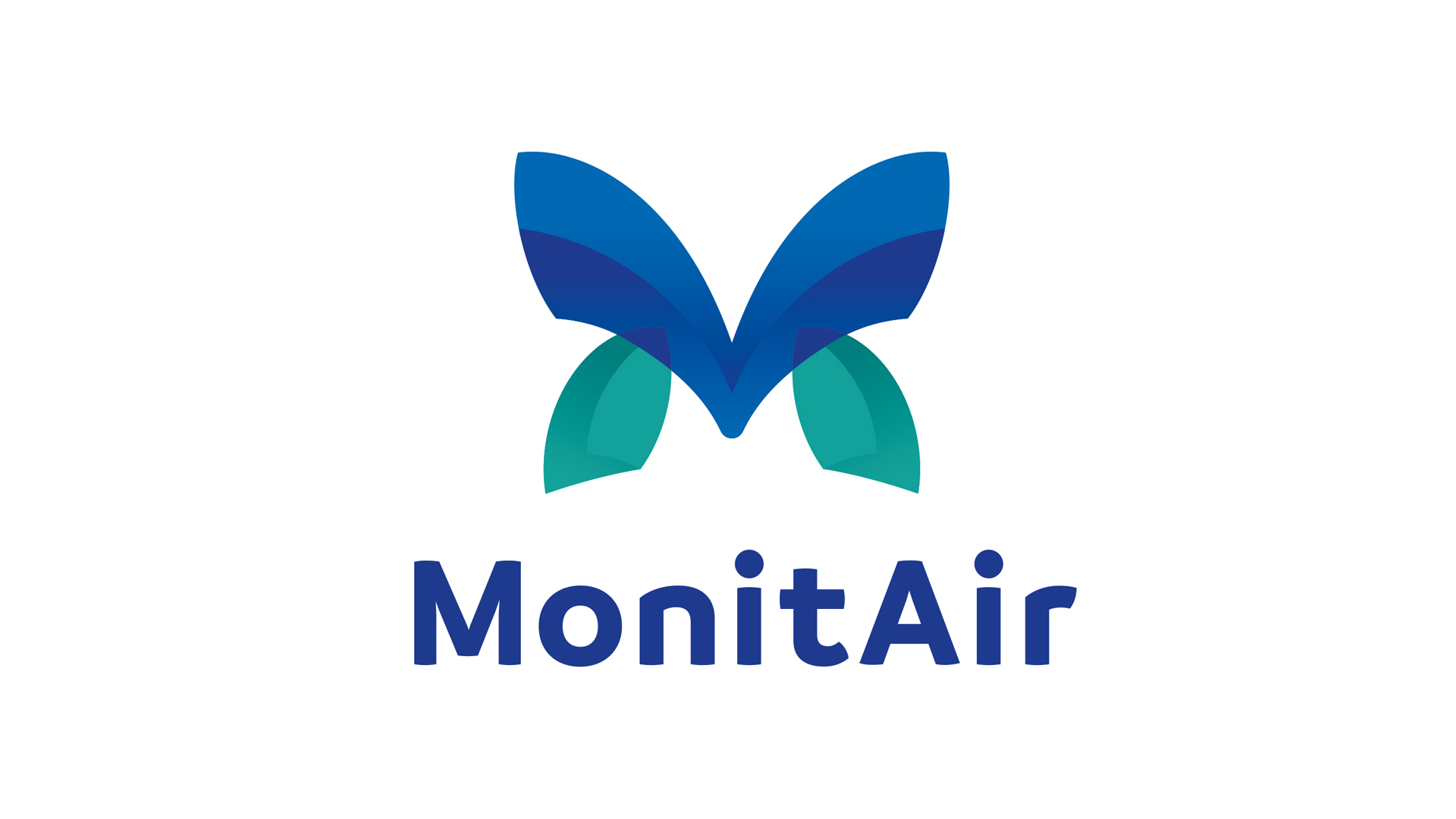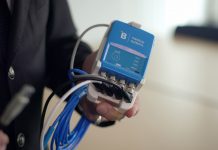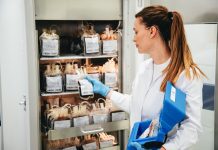
MonitAir is a cutting-edge eHealth product that enables patients to monitor their symptoms of COPD accurately, providing them with unprecedented insights into their condition and alleviating the costly economic burden of consultations on healthcare providers.
According to worldwide figures1, approximately 86 million people have been diagnosed with the chronic lung disease COPD. About 31 million people suffer from symptoms of COPD, such as lung attacks, every year, of which about 7 million patients suffer from severe lung attacks, and a large portion are hospitalised. The estimated direct healthcare costs related to lung attacks amount to €10bn in Europe and more than €30bn worldwide.
For the patient, a lung attack is a life-threatening experience. The fear associated with a lung attack is so great that it ensures that the patient hardly dares to move, which seriously hinders participation in society. This situation leads to a downward spiral that, sadly enough, increases the chance of another lung attack.
COPD patients only recognise the first symptoms of an emerging lung attack at a late stage. As a result, the lung attack can no longer be prevented or curbed. Doctors want to see patients intervene in their COPD symptoms at an earlier stage themselves or ask for help from their treating doctor. This can save a lot of suffering because the condition remains worse after each lung attack. In addition, it also saves expensive primary and secondary care.
MonitAir provides a unique solution for COPD patients
MonitAir is an eHealth product based on a self-learning algorithm that works on the patient’s smartphone. MonitAir is the first eHealth product for COPD patients that completely autonomously interprets patient data and provides advice to the patient without direct intervention from the healthcare provider. MonitAir is a smart self-test for patients to monitor their symptoms of COPD and prevent escalation of a lung attack. The use of MonitAir will unburden the patient and relieve the care provider.
MonitAir was developed in the Netherlands by Dr Peter Lucas, a professor at Radboud University and his team, in close cooperation with Radboud University Medical Center. Together with healthcare providers and patients, MonitAir was prototyped and subsequently medically validated2 and certified. The starting point was to develop a self-management tool.
The objective of MonitAir is to prevent lung attacks by examining symptoms of COPD and thus improving the lives of COPD patients. MonitAir is used at the patient’s home in consultation with the doctor. Unique to MonitAir is that it then works without the intervention of a healthcare provider. The patient is completely self-reliant until MonitAir deems intervention by the doctor necessary. This ensures that patients feel safe and that the care providers are only consulted if this is really necessary.
Forecasting a lung attack
Scientific studies3,4 show that early recognition and prompt action reduce the severity and duration of a lung attack, improve quality of life, prevent complications and reduce healthcare costs. MonitAir is the way for this early recognition. The MonitAir self-learning algorithm calculates the probability of a lung attack on the basis of personal data.
Every week, the patient takes a number of measurements at home and enters them in the MonitAir-app, together with the answers to ten questions derived from an internationally recognised questionnaire. MonitAir then gives preventive and personalised advice, which the patient can follow independently.
“MonitAir allows the patient to be in charge at home for as long as possible, without intervention of the healthcare provider.”
MonitAir in practice
How the MonitAir technology is utilised:
- The MonitAir box containing the measuring equipment is delivered to the care provider or at the patient’s home. Together with the patient, the healthcare provider fills in the medication choices and the treatment plan via the MonitAir-app. If necessary, an explanation is given about how the app and the measuring equipment works so that the patient can perform this independently. In principle, the use of MonitAir is self-explanatory, and the MonitAir-app will guide the patient through the process.
- The patient takes the measurements at home once a week and answers ten questions. With this input, the decision model calculates the probability of a lung attack and links personal advice without intervention from the healthcare provider.
- If the chance of a lung attack becomes too great, MonitAir advises contacting the healthcare provider immediately. MonitAir generates a report at any time for the patient and care provider, with trend data on the measured parameters.
What does the product consist of?
The basis of MonitAir is a smart decision model in the form of software on the patient’s smartphone, which can be controlled via an app. In addition, the patient receives three measuring devices: an oximeter, a thermometer, and a spirometer.
MonitAir offers the following services:
- Management reporting and clinical reporting
- A technical help desk
- Patient and care provider instructional videos
- Optional professional training programme
- Optional proactive patient support by giving a signal if measurements are forgotten
Implementation
The Netherlands is the pilot country for MonitAir. Since the beginning of 2021, the roll-out of MonitAir has started. And notwithstanding two COVID-19 lockdowns in the past year, MonitAir is received very positively among lung physicians and general practitioners. The service is now implemented in five transmural projects in several regions in the Netherlands. In parallel, MonitAir has started a journey that should lead to reimbursement of MonitAir in the Netherlands.
In 2021, MonitAir was selected by Zorgverzekeraars Nederland (the umbrella organisation of all health insurance companies in the Netherlands) to take part in an assessment. The objective of Zorgverzekeraars Nederland is to speed up the implementation of digital care in the Netherlands. The first step in this process is to select relevant eHealth products on the basis of several criteria. Monitair has successfully passed the assessment and is now entering the subsequent phases of the process.
In the meantime, MonitAir maintains excellent contact with the leading health insurers in the Netherlands, who are involved in the start of new implementation projects, both from a practical as well as a financial standpoint. Based on the positive feedback in the Netherlands, MonitAir is now ready to take the next steps abroad.
Improving quality of life for people with COPD
MonitAir has the ambition to realise a transition in care for COPD patients. The starting point is prevention and to enable people to manage their own health for as long as possible. The result is a higher quality of life with COPD, less pressure on care providers thanks to fewer consultations and costs savings because more expensive secondary care is postponed. The above is given shape in the form of various development projects.
In addition to the transition in healthcare, the further development of MonitAir is mainly focused on two principles:
- Working on further improvement of diagnostics and predictive value;
- Striving for an even more patient-friendly use, “fail-safe and foolproof” and intuitive.
Further developments
In the coming years, other conditions common in COPD, such as obstructive apnea and cardiac abnormalities, will be investigated for relevance and feasibility.
In addition, MonitAir wants to be recognised in the market as a specialist in the respiratory field. Besides COPD, MonitAir will investigate whether it can also make its decision model, developed for the lung disease COPD, also suitable for the lung diseases Asthma and lung COVID.
References
- European COPD Coalition, Pauwels 2000, Wouters 2003, Halbert et al 2003, RIVM 2015
- Boer et al, International Journal of COPD 2018: I3 3325 3267
- Whole system demonstrator programme: headline findings, December 2011
- Maria F. Sedano, Diane Nault, Dina H. Hamd, Jean Bourbeau (2009)


























